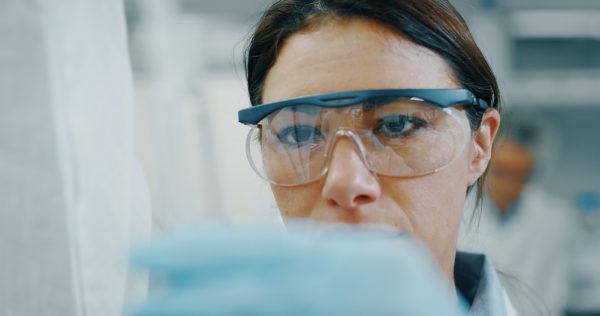
Mind and Microbiome: Unveiling the Gut’s Influence on Mental Health

Dr. Nienke de Bles, psychologist and post-doctoral researcher at the Department of Psychiatry at Leiden University Medical Center, alongside Dr. Erik Giltay, psychiatrist and epidemiologist, have co-authored a compelling scientific paper exploring the gut-brain axis and its implications for mental wellbeing. In this interview, we explore how microbiome research is shaping our understanding of the gut’s role in mental health.
Could you give a summary of this interesting paper’s key points?
In this paper, we describe evidence suggesting that the gut microbiome is of importance to several psychiatric disorders, including mood disorders and psychotic disorders. However, the precise role of the gut microbiome in the development and treatment of psychiatric disorders needs to be disentangled further. Interestingly, in vivo and in vitro research indicates that psychotropic medication, prescribed to treat psychiatric symptoms, may have negative effects on the microbiome. It had an antibiotic-like impact on many of its commensal bacteria. This also offers a perspective, as it suggests that external factors may influence the microbiome, both beneficially and adversely. However, evidence for the effectiveness of new treatment strategies, such as prebiotics, probiotics, or a combination thereof, and fecal microbiota transplantation (FMT), is currently insufficient to translate into clinical practice in the field of psychiatry.
Recent studies have increasingly focused on the gut-brain axis and its potential impact on mental health, particularly concerning conditions such as depression, anxiety, and other neuropsychiatric disorders. What do you think are the underlying biological mechanisms involved?
The gut-brain axis communicates via several pathways, including communication with the central nervous system via enteroendocrine cells (EEC) in the gut. The microbiome can influence by releasing neuropeptides and hormones, which may subsequently influence behavior. Additionally, commensal bacteria from the gut microbiome are known to produce metabolites such as short-chain fatty acids, vitamins, and neurotransmitters, which could influence mood, cognition, quality of life, and appetite. Direct communication also occurs via the vagal nerve, which consists of 80% afferent and 20% efferent fibers and is the primary component of the parasympathetic nervous system. The important nerve can transmit information to the central nervous system and activate neurons in the brain. Furthermore, the balance between immunosuppressive and pro-inflammatory cytokines is influenced by commensal bacteria, which affects mental well-being. All these pathways do not function independently but influence and interact with each other in complex ways.
Can you share some of the emerging science that you feel will contribute to a better understanding of mental health?
Much of the existing research concerns preclinical and pilot studies, meaning that a translation to clinical practice is still premature. Additionally, associations have mostly been studied in isolation; there is mostly observational knowledge about medication in relation to the microbiome and about lifestyle in relation to the microbiome. Rarely are both factors examined in one study. Larger experimental studies, which consider medication use and lifestyle behavior, are essential to determine if new interventions are effective and to identify which patients can benefit most.
What do you feel is needed for the field to move forward? What are ways that the community can help move mental health research forward?
A complicated factor in this field is the lack of a universally accepted definition of what constitutes a ‘healthy’ and dysbiotic gut microbiome. Furthermore, the diversity within the human microbiome is enormous compared to the variation in genetic material: individuals are approximately 99.9% identical to each other genetically but can differ by as much as 80-90% in terms of their gut microbiome. This may explain why results can differ greatly and sometimes even show inconsistent findings in different groups. Future standardized clinical studies are needed to investigate the potential therapeutic effects of prebiotics and probiotics on both the microbiome and mental health outcomes.
We’re excited to hear more about the studies you are involved with in the near future. Until then, what role can nutrition play in supporting mental health?
Our hypothesis is that nutrition might support mental health among individuals at higher risk of having a dysbiotic gut microbiome. This is, for example, the case among individuals prescribed antipsychotics, as antipsychotics are known to have undesirable effects on the gut microbiome. Restoring the gut microbiome might be most beneficial for these individuals, both for their physical and their mental health.